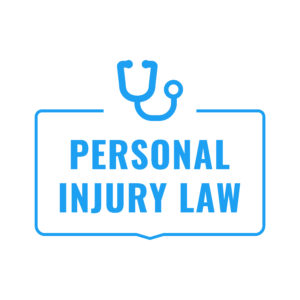Personal Injury Cases In Pennsylvania: A Short Guide
November 5, 2019
 The legal term “personal injury” actually refers to a number of different causes of action from slips and falls and car crashes to unsafe consumer products and assaults. The most common personal injury suits stem from motor vehicle accidents. When it comes down to it, if you have suffered harm and believe that someone else has been negligent or is liable for your injuries, a personal injury suit is usually the road to recovery. If you are considering a personal injury suit, there are a few things you should be aware of when starting the process.
The legal term “personal injury” actually refers to a number of different causes of action from slips and falls and car crashes to unsafe consumer products and assaults. The most common personal injury suits stem from motor vehicle accidents. When it comes down to it, if you have suffered harm and believe that someone else has been negligent or is liable for your injuries, a personal injury suit is usually the road to recovery. If you are considering a personal injury suit, there are a few things you should be aware of when starting the process.
Contact An Attorney As Soon As Possible
If you suffer an injury through negligence or fault, you only have a certain amount of time to file a lawsuit before you are barred from doing so. This time period is known as a Statute of Limitations, and in most cases the clock begins to tick on the day that the incident in question occurred. In Pennsylvania, most civil cases have a Statute of Limitations of two years. There are a few causes of action that have a longer or shorter Statute of Limitations, so it is vitally important that once you are able to get in touch with an attorney and begin discussing your options. The right attorney will be able to guide you through the process from the very beginning from filing the suit in the right court, to gathering evidence to support your case, and formulating strategies to get you the best outcome possible. They will also engage the other side’s attorney or their insurance on your behalf, negotiating possible settlements and handling a trial if necessary.
Don’t Talk To Anyone Without A Lawyer
Unlike criminal courts, a party is not granted Miranda rights for any statements they make about the case. Any statements that you make to an insurance adjuster or any other representative can use your statements against you. So be sure to talk to an attorney first. It is important to note that Pennsylvania is a two-party consent state when it comes to recordings. So if you are talking to an insurance adjuster on the phone, they must request your permission first before they are allowed to record the call for evidentiary purposes. If they ask, say no, and call your attorney. This way, you cannot be tricked into making a statement you didn’t mean to make.
Releases and Record-Keeping
If someone asks you to sign any sort of legal release form regarding your accident, say no! Have your attorney take a look at it first to avoid being swindled into taking less than you are entitled to or waive your right to sue completely. Also important is to keep everything related to the accident or incident for evidentiary purposes. Medical bills and charts, lost wages, bills for property damages, this is how your lawyer can help prove that you suffered actual harm and give them a starting point for damages negotiations.
Above all, don’t make any decisions without consulting a lawyer first! It can mean a huge difference in your recovery.
Contact A Personal Injury Lawyer to Discuss Your Personal Injury Case Today!
Did you or a loved one sustain serious injuries in an accident in Pennsylvania? Don’t let the medical bills pile up while you wait for the negligent party or their insurance company to do the right thing. Right now, you need an aggressive personal injury attorney on your side, fighting to get you the compensation you need, want, and deserve. The skilled attorneys at Purchase, George, and Murphey P.C. represent clients throughout Pennsylvania, including Erie, Meadville, and Edinboro, Pennsylvania. Call 814-833-7100 or fill out our online contact form to schedule a consultation about your case. We have an office conveniently located at 2525 W 26th St., Erie, PA 16506, as well as offices at The Masonic Building 310 Chestnut St, Suite 111 Meadville, PA 16335 and at 68 East Main Street, North East, PA 16428.
The articles on this blog are for informative purposes only and are no substitute for legal advice or an attorney-client relationship. If you are seeking legal advice, please contact our law firm directly.